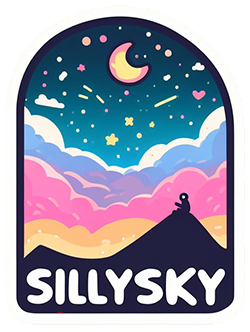CRecordUserDbGetUserRecord
This request fetches a user's data from the microservice session manager.
This message belongs to the session manager API.
{
"id": "f4459095-3a4a-48e5-8790-9fa3a416b8e4",
"name": "USER_DB_GET_USER_RECORD",
"description": "Get a user for displaying.",
"slots": [
{
"key": "SessionToken",
"name": "SESSION_TOKEN",
"direction": "REQUEST",
"mandatory": "true",
"type": "UUID",
"description": "The session token."
},
{
"key": "userId",
"name": "USER_ID",
"direction": "REQUEST",
"mandatory": "true",
"type": "STRING",
"description": "The user id."
},
{
"key": "userRecord",
"name": "USER",
"direction": "ANSWER",
"mandatory": "false",
"type": "RECORD",
"description": "The user record (see USER_DB_USER_RECORD)."
},
{
"key": "roles",
"name": "ROLES",
"direction": "ANSWER",
"mandatory": "false",
"type": "STRING_ARRAY",
"description": "The roles a user belongs to (incl. role of roles)."
},
{
"key": "rights",
"name": "RIGHTS",
"direction": "ANSWER",
"mandatory": "false",
"type": "STRING_ARRAY",
"description": "The rights of the user."
}
]
}
Example of use of the class CRecordUserDbGetUserRecord (after generating)
You need the microservice ID of the session manager:
public static final IId SESSION_MICROSERVICE_ID = CIdFactory.fromObject("ccf168c1-f18b-4229-85f9-24461a19ee6a");
To fetch the data of a single user, we need the user ID.
Additionally, we need the session token of the current user to check the right to this request.
The executing user needs the NY_GetUserData permission.
User rights are stored in the user database by the administrator.
private void getUserRecord(@NotNull final UUID aToken,
@NotNull final String aUserId) throws CException
{
final CEnvelope env = CEnvelope.forMicroService(SESSION_MICROSERVICE_ID);
final CRecord record = CRecordUserDbGetUserRecord.create();
CRecordUserDbGetUserRecord.setSessionToken(record,
aToken);
CRecordUserDbGetUserRecord.setUserId(record,
aUserId);
sendRequest(env,
record);
}
To catch the response of the request, we need a message handler. We add it in the constructor of the message handler registry.
// constructor:
addMessageHandler(CRecordUserDbGetUserRecord.ID,
this::asyncGetUserRecord);
private boolean asyncGetUserRecord(@NotNull final CEnvelope aEnvelope, @NotNull final CRecord aRecord) { if (aEnvelope.isAnswer()) { final int resultCode = aEnvelope.getResultCode(); if (resultCode == CResultCode.SUCCESS) { final String userId1 = CRecordUserDbGetUserRecord.getUserId(aRecord, null); final String[] roles = CRecordUserDbGetUserRecord.getRoles(aRecord, null); final String[] rights = CRecordUserDbGetUserRecord.getRights(aRecord, null); final CRecord userRecord = CRecordUserDbGetUserRecord.getUser(aRecord, null); if (userRecord != null) { final String userId2 = CRecordUserDbUserRecord.getUserId(userRecord, null); // in reality the password SHA-384 Hash, base64 encoded final String password = CRecordUserDbUserRecord.getPassword(userRecord, null); final String realName = CRecordUserDbUserRecord.getRealName(userRecord, null); final String email = CRecordUserDbUserRecord.getEmail(userRecord, null); final String createdBy = CRecordUserDbUserRecord.getCreatedBy(userRecord, null); final LocalDateTime timeCreated = CRecordUserDbUserRecord.getTimeCreated(userRecord, null); // ... } // ... } return true; } return false; }
